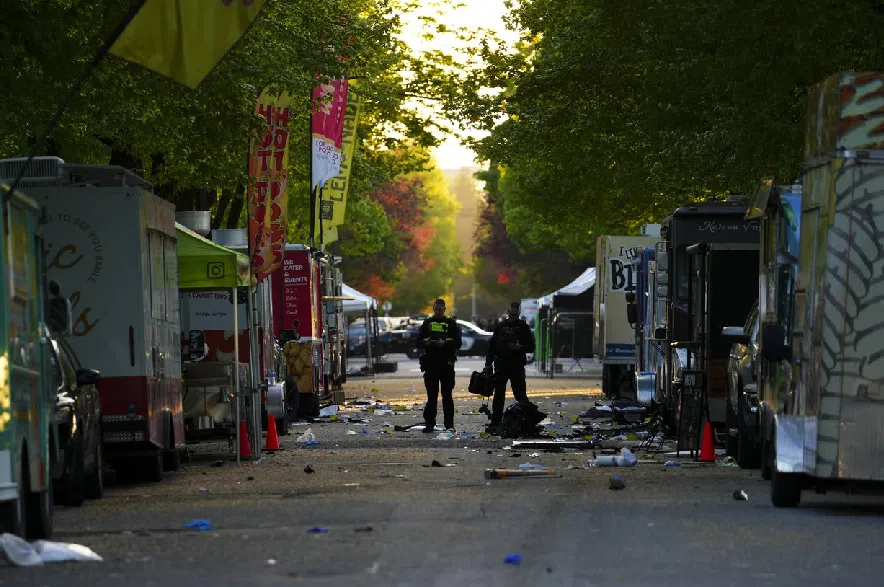TORONTO — Event organizers across Canada say they’re combing over their security practices in the wake of Saturday night’s deadly attack on a Vancouver street festival, hoping to fill any gaps to protect attendees.
Politicians are also turning their attention to the issue, with British Columbia Premier David Eby saying he would call an independent commission to gather information about how other regions handle festival safety.
Read More:
- Many will need care after Vancouver festival attack that killed 11, organizer says
- Collective trauma after festival attack could ripple for months, experts say
- Timeline of Vancouver vehicle attack that left 11 dead at Lapu Lapu Day festival
Eby says he wants to ensure residents of his province feel safe going out to community events this summer, despite the van attack at the Lapu Lapu Day festival that claimed 11 lives and injured dozens more.
Kelly Kurta, executive director the Greater Victoria Festival Society, says she got in touch with police and the fire department on Sunday morning to make sure there wasn’t more they could do to secure the upcoming Victoria Day Parade.
She says their plans were already fairly comprehensive, but they might bring in more vehicles to barricade parade routes.
She says security can be costly: roughly 75 per cent of her budget goes to “risk management.”
“You prepare, you anticipate, but nobody could have imagined what happened last Saturday,” she said. “Nobody.”
The tragedy’s reach extends beyond the West Coast, with the CEO of industry group Festivals and Events Ontario saying he too is looking at safety issues after Saturday.
Dave MacNeil says those in the business always re-evaluate their procedures after an event is targeted.
That’s mostly because they want to keep their clientele safe but also because insurers require robust security plans.
“We have to sit down and really look at it through the lens of what else could possibly happen, what could possibly go wrong. And every time something like that happens, wherever it is around the world, it always comes back to impact all of us,” MacNeil said.
He said the high cost of security can make hosting large events difficult.
“Risk management is one of those things that’s making it harder and harder to execute events,” he said. “It’s what’s making them more and more expensive to execute, to insure.”
Last year, the City of Toronto announced the Special Events Stabilization Initiative, a funding program meant to cover some expenses related to health, safety and security, including fire and paramedic services, and “hostile vehicle mitigation,” which is a security measure meant to lower the threat of a criminal or terrorist attack.
The money was a one-time grant for organizers hosting events in an outdoor public space in 2024.
City spokeswoman Laura McQuillan pointed to that fund when asked about festival security, but didn’t immediately say whether it would return in 2025.
She said that all event organizers are required to arrange a traffic management plan that includes barricades and “road closed” signs, as well as event marshals and security in those places.
“While hostile vehicle mitigation measures are not a formal requirement for every event, the City and its partners identify and assess potential threats during the event planning process, including identifying high-risk events where hostile vehicle mitigation measures should be implemented,” McQuillan wrote in an email.
This report by The Canadian Press was first published April 30, 2025.
Nicole Thompson, The Canadian Press











